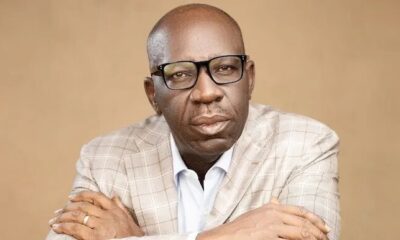Brand Matters
Introversion: Embracing silence in a noisy society -By Labaran Yusuf


“Wise men, when in doubt whether to speak or keep quiet, give themselves the benefit of doubt, and remain silent” – Napoleon Hill
Ask a psychology professor, who is an introvert? And here are some of the replies you will come across: the child who immediately, when he comes home from school, escapes to the privacy of his room for time alone; the speaker who presents beautifully in front of a thousand people but who leaves a few minutes into the social hour because he says he can’t deal with large groups of people; the quiet student who always has a book in hand, commonly plays alone, and whose favorite place is the reading corner; the adult who is vocal and social in a small group of people but who becomes silent and withdrawn if she is made to work in a larger one; the adolescent with only one best friend who lives in another city or state and who is content with that situation; or the individual who when attending a conference or convention can only take so much socializing and hustle and has to retreat to the privacy of her hotel room to ‘re-center’ herself.
According to Jennifer B. Kahnweiler, Ph.D, a certified speaking professional, executive coach and author of Quiet Influence: They Introvert’s Guide to Making a Difference. “At least half of people who speak for a living are introverted in nature,” This is because, as their focus is on the inner world, introverts understand the world through careful contemplation and prefer not to act or respond without thoughtful consideration.
Also, Sophia Dembling, according to her book The Introvert’s Way: Living a Quiet Life in a Noisy World, she said about introverts “You’re not shy; rather, you appreciate the joys of quiet. You’re not antisocial; instead, you enjoy recharging through time alone. You’re not unfriendly, but you do find more meaning in one-on-one connections than large gatherings.
Introverts aren’t simply shy people, although certainly many are shy. They also are not simply depressed individuals, although introverts just as extroverts can be depressed. And they aren’t all social outcasts, although it may appear this way to the extroverts who need that ongoing social contact to be healthy and happy. Introversion is not a pathological condition; it is not an abnormal response to the world. It is simply a personality trait found in a small percentage of the total population.
Introverts are different from extroverts and this difference is very difficult for the extrovert to understand because they do not operate in that fashion. And because they do not understand it, many continually try to help the introvert become more social, more gregarious, more outgoing, and have more fun from the extrovert perspective. Such is the situation of the introvert, a minority in the regular population but a majority in the gifted population (Gallagher, 1990; Hoehn & Birely, 1988). And that difference from the ‘norm’ is the reason this factor needs to be considered when developing educational programs and parenting strategies for gifted students.
The introverted attitude is one of caution, reserve and reflection. For introverts, meaning comes from within and anchors their sense of reality. In contrast the extraverted attitude is one of immediate response, adaptability and involvement. Introverts characteristically pause before action, this pause, often called hesitation by others, gives them time to study and classify a new situation so the action taken will make sense in the long run.
Many great people have been introverts – as Susan Cain, her herself an introvert, highlighted in her book Quiet Power: Growing Up as an Introvert in a World That Can’t Stop Talking, introverts that have enrich society include: J. K. Rowling (famous for her book: Harry Potter) , Isaac Newton , Albert Einstein , Mahatma Gandhi , Dr. Seuss , W. B. Yeats , Mack Zuckerberg (founder of Facebook.com), Steven Spielberg and Larr.
Successful Nigerian introverts also include: Dr Mike Adenuga – a business tycoon with heavy investment in telecoms, banking, property, oil, among others; Aliko Dangote, a business magnate, ranked by Forbes as the 23rd richest person in the world and the richest man in Africa; Linda Ikeji (blogger at lindaikejisblog.com); Tuface Idibia (Nigerian musician), among others.
At long last, you cannot magically “cure” a person’s introversion. And why would you want to? Introversion comes with many unique gifts. The society needs calm, more quiet, and more depth. Introverts are best people to provide all that and much more. Instead of trying to change them into extroverts, society should thank introverts for bringing balance to an exhaustingly extroverted society.
About the Author: freelance writer and researcher with expertise on European, Middle-eastern, African and the Americas politics. Also a student with University of Jos. Feedbacks are appreciated, email me at yusuflab997@gmail.com
Labaran Yusuf
Jos, Plateau state













![The EU is punishing Turkey for an operation that it felt forced to embark on as a result of their own questionable decision to partner with the YPG in the fight against ISIL, writes Bakeer [Reuters]](https://www.opinionnigeria.com/wp-content/uploads/2019/10/The-EU-is-punishing-Turkey-for-an-operation-that-it-felt-forced-to-embark-on-as-a-result-of-their-own-questionable-decision-to-partner-with-the-YPG-in-the-fight-against-ISIL-writes-Bakeer-80x80.jpg)




